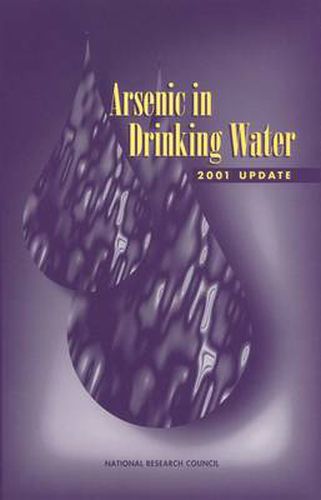Readings Newsletter
Become a Readings Member to make your shopping experience even easier.
Sign in or sign up for free!
You’re not far away from qualifying for FREE standard shipping within Australia
You’ve qualified for FREE standard shipping within Australia
The cart is loading…






Having safe drinking water is important to all Americans. The US Environmental Protection Agency’s decision in the summer of 2001 to delay implementing a new, more stringent standard for the maximum allowable level for arsenic in drinking water generated a great deal of criticism and controversy. Ultimately at issue were newer data on arsenic beyond those that had been examined in a 1999 National Research Council report. EPA asked the National Research Council for an evaluation of the data. The committee’s analyses and conclusions are presented here. New epidemiological studies are critically evaluated as are new experimental data that provide information on how and at what level arsenic in drinking water can lead to cancer. The report’s findings are consistent with those of the 1999 report that found high risks of cancer at the previous federal standard of 50 parts per billion. In fact, the new report concludes that men and women who consume water containing 3 parts per billion of arsenic daily have about a one in 1000 increased risk of developing bladder or lung cancer during their lifetime.
$9.00 standard shipping within Australia
FREE standard shipping within Australia for orders over $100.00
Express & International shipping calculated at checkout
Having safe drinking water is important to all Americans. The US Environmental Protection Agency’s decision in the summer of 2001 to delay implementing a new, more stringent standard for the maximum allowable level for arsenic in drinking water generated a great deal of criticism and controversy. Ultimately at issue were newer data on arsenic beyond those that had been examined in a 1999 National Research Council report. EPA asked the National Research Council for an evaluation of the data. The committee’s analyses and conclusions are presented here. New epidemiological studies are critically evaluated as are new experimental data that provide information on how and at what level arsenic in drinking water can lead to cancer. The report’s findings are consistent with those of the 1999 report that found high risks of cancer at the previous federal standard of 50 parts per billion. In fact, the new report concludes that men and women who consume water containing 3 parts per billion of arsenic daily have about a one in 1000 increased risk of developing bladder or lung cancer during their lifetime.